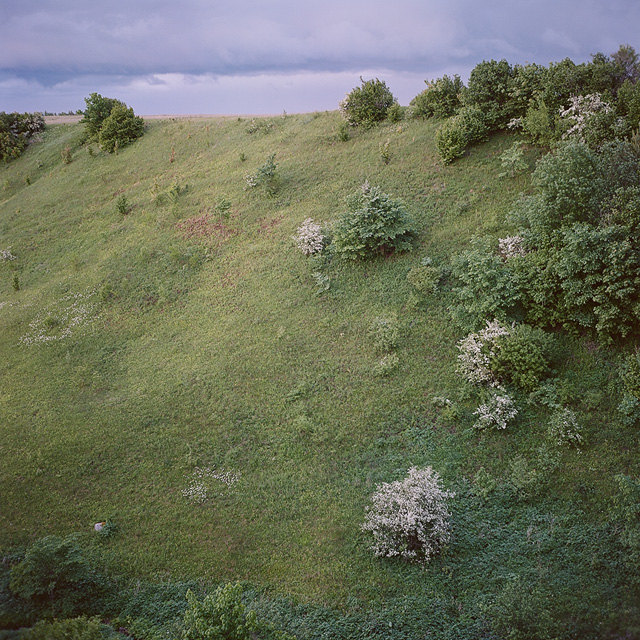
Izborsk is a large village in the North-West of Russia, some 30 km away from the European border. Founded as a fortified city 1250 years ago, it seems to have stuck in the Middle Ages. There is no running water in the houses, no central heating or gas. The houses are heated the same way as 500 years ago - by burning wood. The fortress that in the past stood many a battle is conducting a undeclared war against modern technology, in part consciously, in part not.
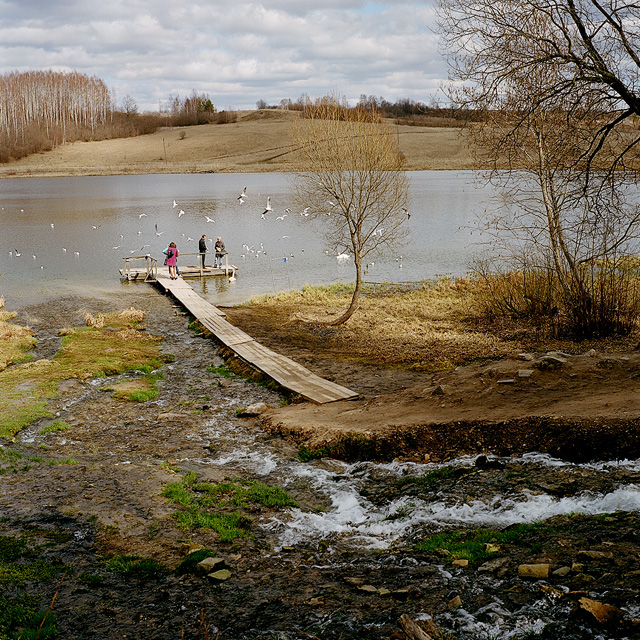
It has many attractions for tourists: one of them are the famous 12 Apostles' springs. The water runs from 12 spots in a hillside, and down into a lake, populated by a family of 12 swans. Because of the springs or not, the lake does not freeze in winter, so the swans don't have to leave.
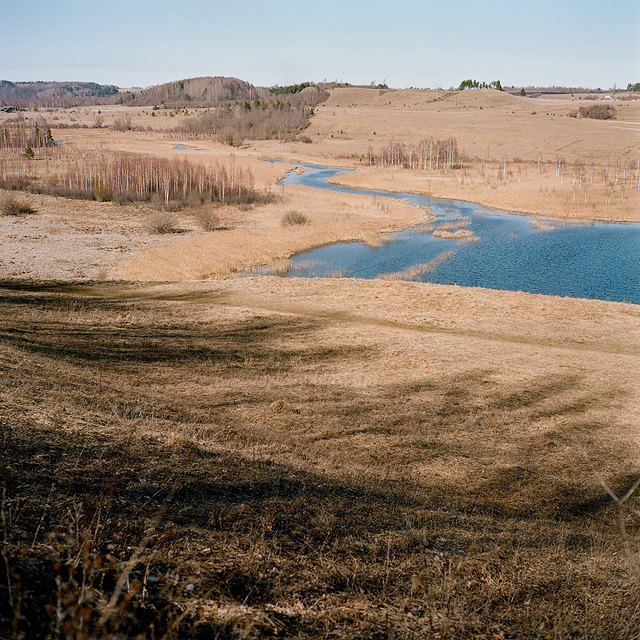
Its location can be described as picturesque in a peaceful way: hills and valleys, intermingled with groves, a river, a lake and numerous brooks. With no single urban touch in sight, not the slightest technological disturbance.
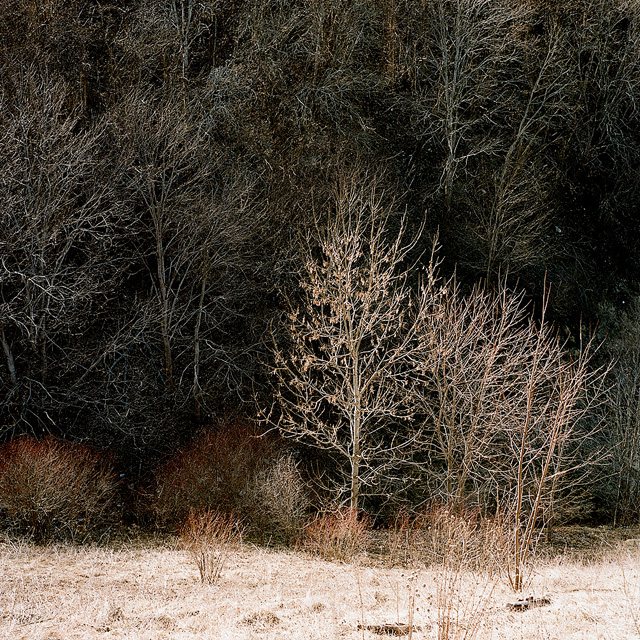
Andrey Tarkovsky, the great Russian cinematographer, filmed a number of episodes of "Andrey Roublev", his immortal masterpiece, in Izbosk valley.
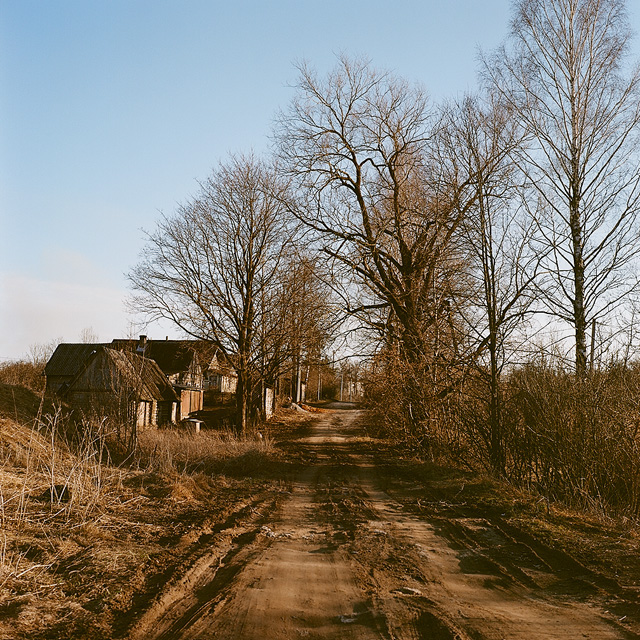
90 per cent of houses in Izborsk are wooden. Traditional houses made of entire round logs are called 'izba'. Hence the name of the place, Izborsk. At least, one of the versions is to that effect.
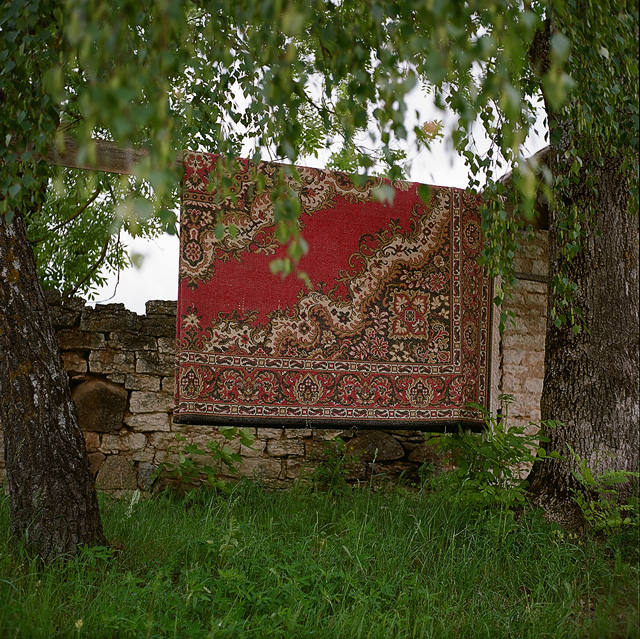
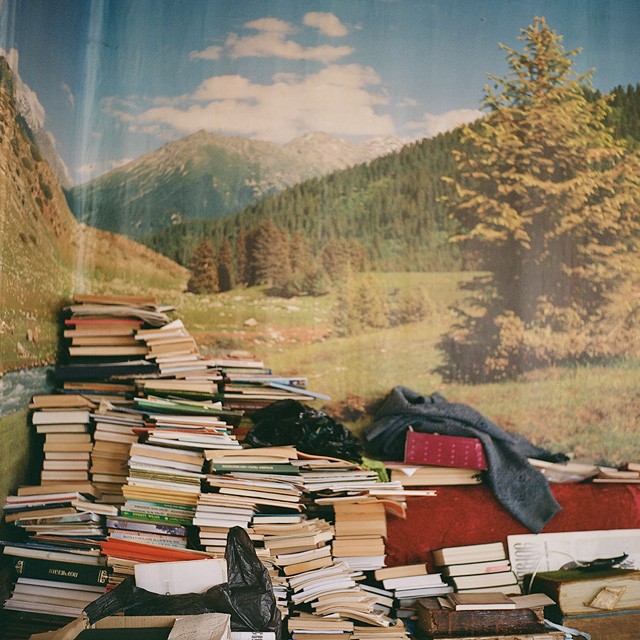
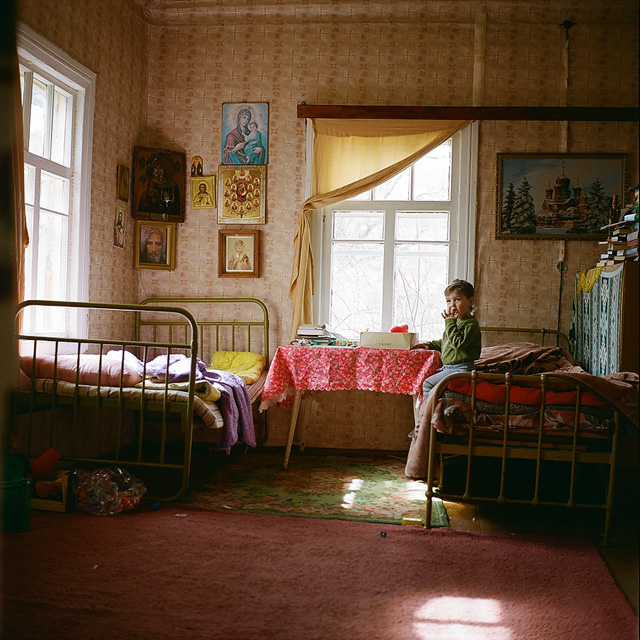
Son of the local priest, Vanya, 3 y.o., in his family house.

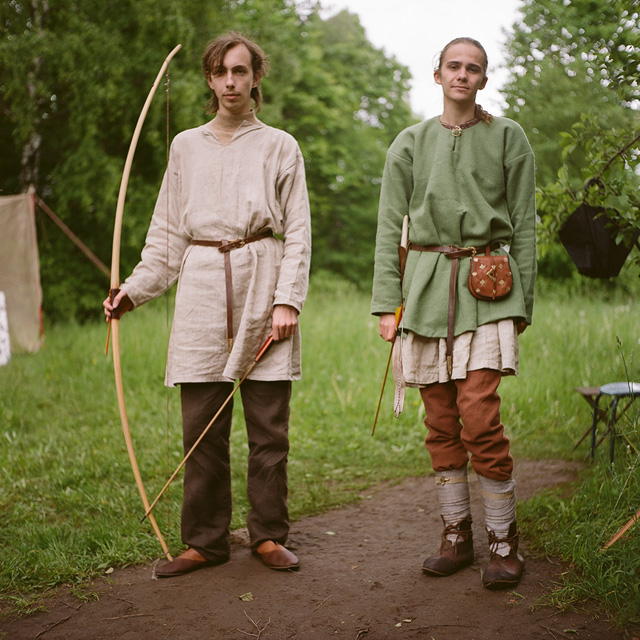
Nikolay and Vladislav from the Pskov club of historical reconstruction. They are in the IX-XI century department. Why? Because the clothes and weapons for that period are relatively easy to make as compared to the armour from the later ages that is hard both to make and wear.

People exit St Nicholas' cathedral at the end of the service on the Holy Trinity day. One of the women is holding consecrated branches of birch tree, the feast symbol. A man is making the sign of cross and bowing to the church.
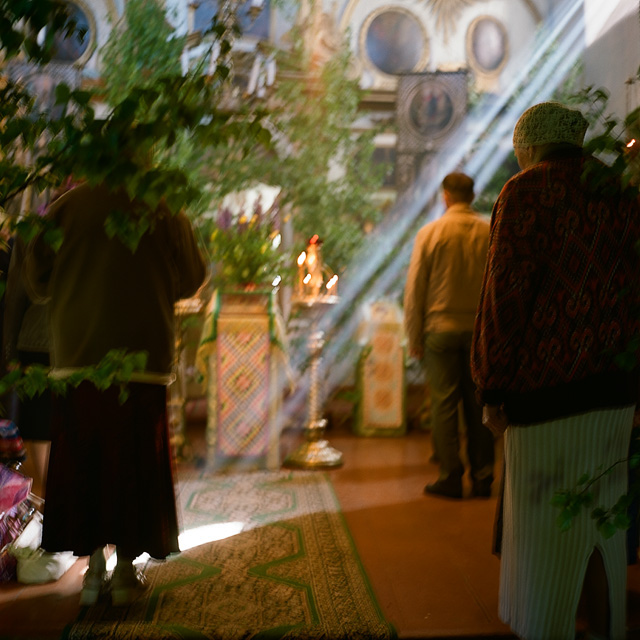
Most people of Izborsk are believers. There is one cathedral, three churches and a few smaller chapels. None of them was destroyed during the Soviet period, closed down or converted into a civic establishment, as was customary during the years of communist rule. In this respect Izborsk is a unique place: people practiced religious rites, e.g. weddings, christenings, and celebrated major religious feasts like Christmas, Epiphany and Easter while at the same time working at the collective farmers' (kolkhoz) and officially being atheists.

Alexandra is a church key keeper. She looks after St Nicholas' cathedral. From her house window she can see those who enter the church. Now and then she rushes there with an inspection, to sell candles, remove the wax from the chandeliers and help prepare the church for the service. Alexandra does not like to do things in a rush. That's why she is often cross with her three cats. One of them always gets on her nerves, the wild adopted one.
Alexandra is positive about the demonic nature of all modern technology. She blames cell phone networks for migrant birds' lost orientation and mass death of bees.
Alexandra is positive about the demonic nature of all modern technology. She blames cell phone networks for migrant birds' lost orientation and mass death of bees.
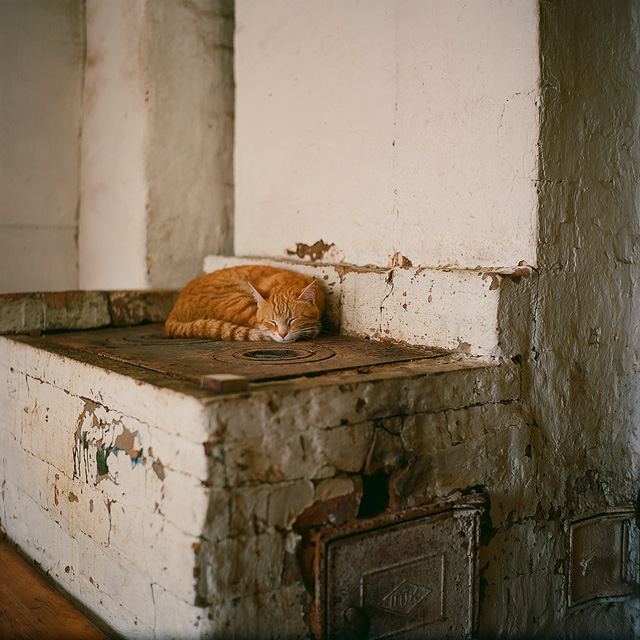
The wood oven keeps Alexandra and her cats warm. No other heating system is known in Izborsk.
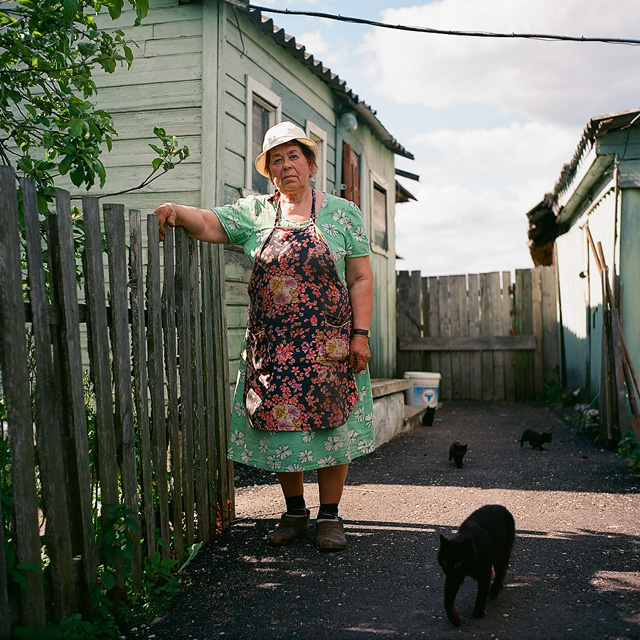
Nina Ivanovna is a retired nurse. She worked in Izborsk's only hospital for 55 years. Now there is no hospital in that village, it was closed down years ago, and the building was converted into a rather fancy hotel. The only place with heating, running water and sewage.
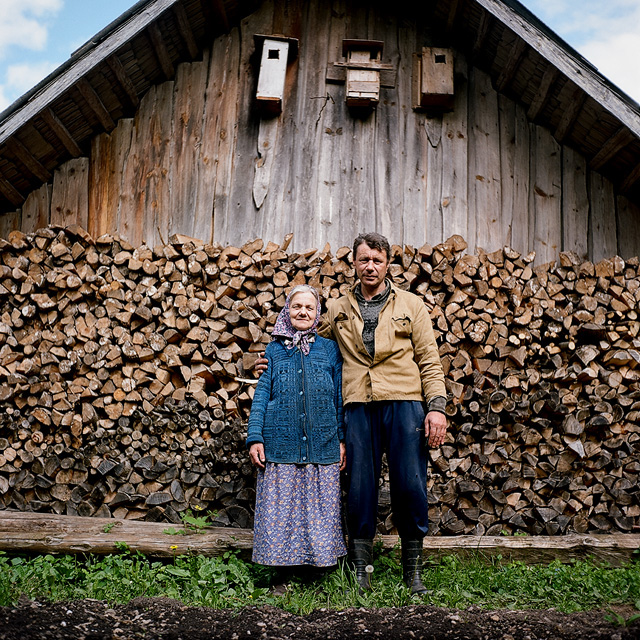
Babka Valya and her son Serguei, aged 33. He does odd jobs about the village, gives a hand with carpentry and can dig a hole in the garden.
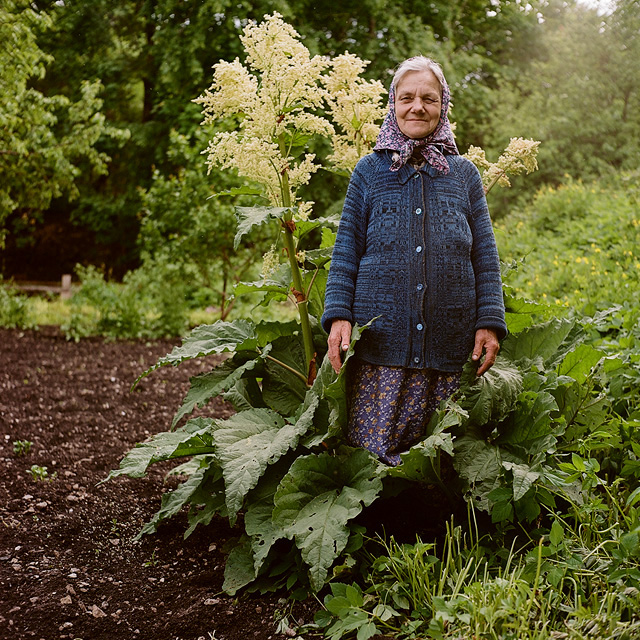
Babka Valya found out that sleeping outside makes one's heart stronger. Since May this year she has been sleeping outside on a self-made bed, dressed in a fur-coat and shapka-ushanka (traditional fur hat with ear-flaps).
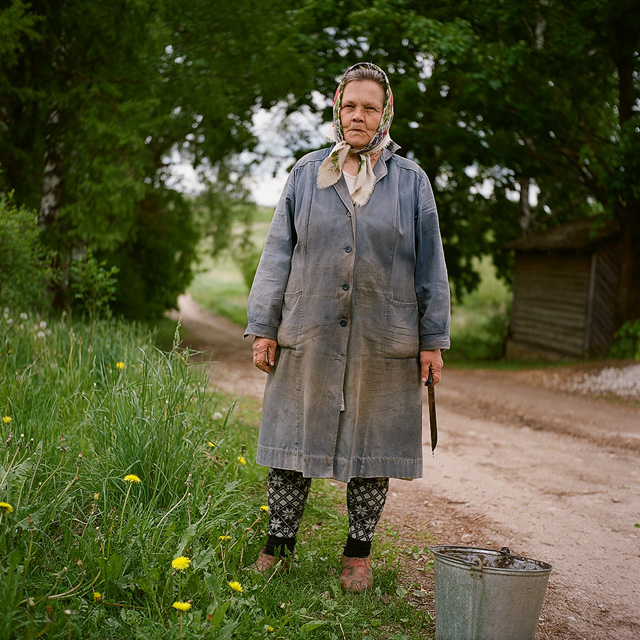
Baba Tanya has a toothache but does not want to go to Pskov to see a dentist. There used to be a dentist in Izborsk when there was a hospital, but not anymore. The tooth is bothering her, yes, it's a nuisance, but having to go to the city is a worse nuisance.
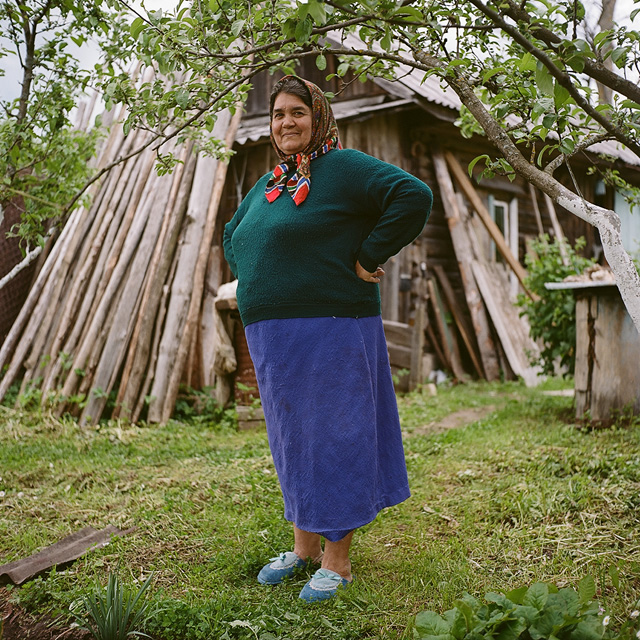
Tamara is a mother of six. She is a believer. That's her advice for everybody: be grateful to God for everything.
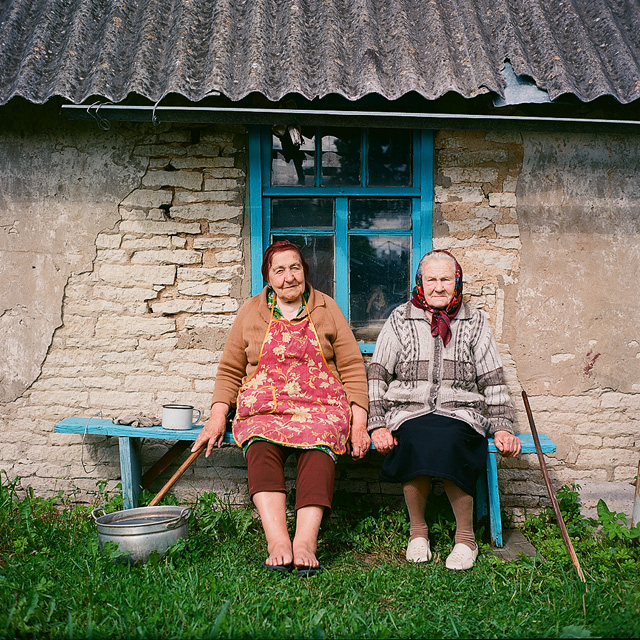
Ulyana and Ekaterina, neighbors. Eketerina, on the right, has no more family left and lives completely by herself.
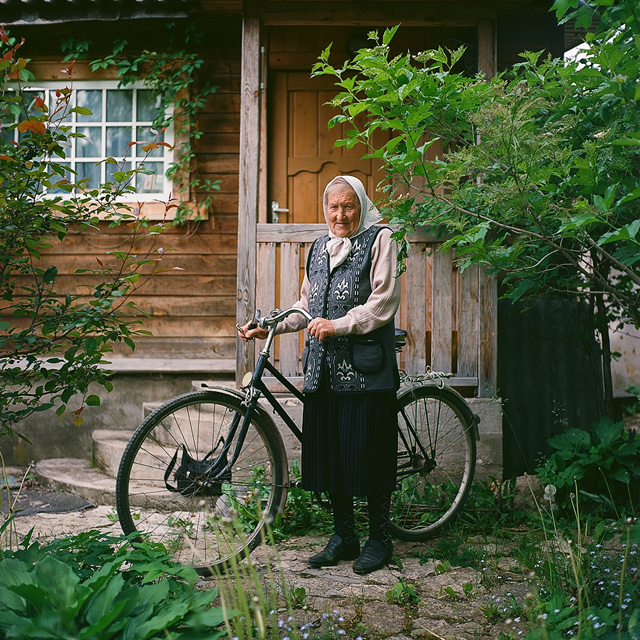
Olga Ivanovna and her bicycle. She goes everywhere by bike - to church, shopping and to visit needy neighbors, a family of ex-Moskovites. The day I met her, she was taking last year's potatoes to them.
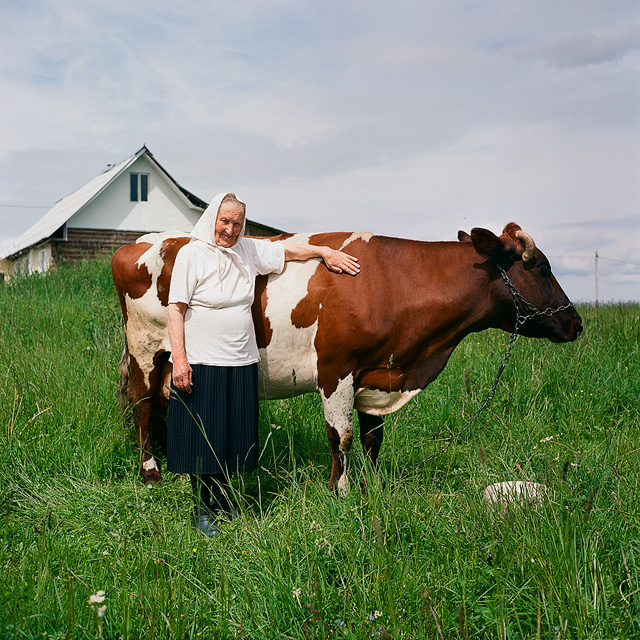
Olga Ivanovna lives with her cow. There are just three cows in Izborsk now. Of course it is not easy to care for, but Olga Ivanovna is ok with it. Someone came up to her in the church the other day to ask "Still giving yourself all that cow trouble?". So she had to answer: "Why trouble? I am fine with it, there's plenty of grass, thank God".
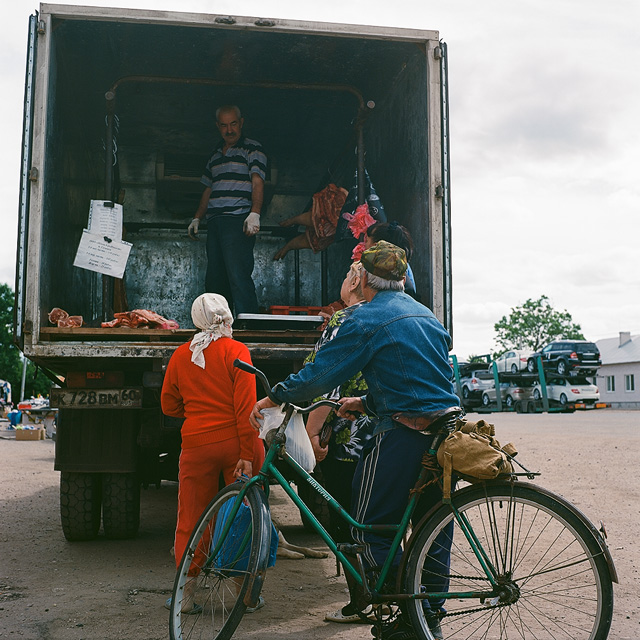
There are three shops in Izborsk. This is the fourth.
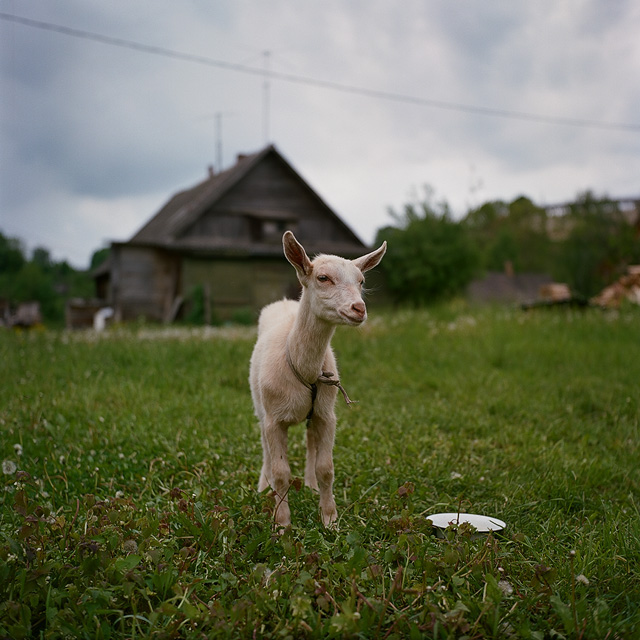
It is nice to observe that the village is alive.

